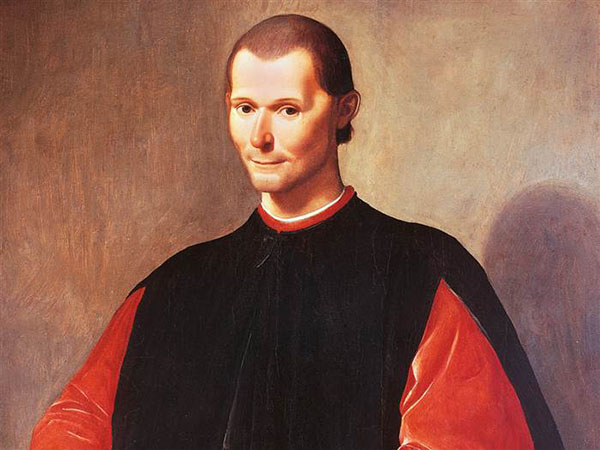Machiavelli: The Ethics of Control & The American Condition
By M. Raphael Johnson. “I conclude then that since fortune changes, and men stubbornly continue to behave in the same way, men flourish when their behavior suits the times and fail when they are out of step. I do think, however, that it is better to be headstrong than cautious, for fortune is a lady. It is necessary, if you want to master her, to beat and strike her.” —The Prince, Chapter 25, page 76.

Politics is about power, or, more accurately, about the mode and manner of its use. It is equally about morality, or the constraints one is required to place upon the use of power. Morality is the action of reason, or the mind, upon the will, or the appetites, and therefore, morality in politics concerns the application of reason to the unlimited and directionless will-to-power. In order to critique the abuse of power, then, one must have a concept of moral behavior, a notion of the good and at least a rough idea of the purpose of life. [Read the entire article as PDF…]
Taken from The Barnes Review, January/February 2002: Niccoló Machiavelli (1469–1527) VOLUME VIII, NUMBER 1
Share this post
Ancient Tulum: Mayan Capital of High Technology and Ancient White Leadership
re-Spanish Mexico’s ...





